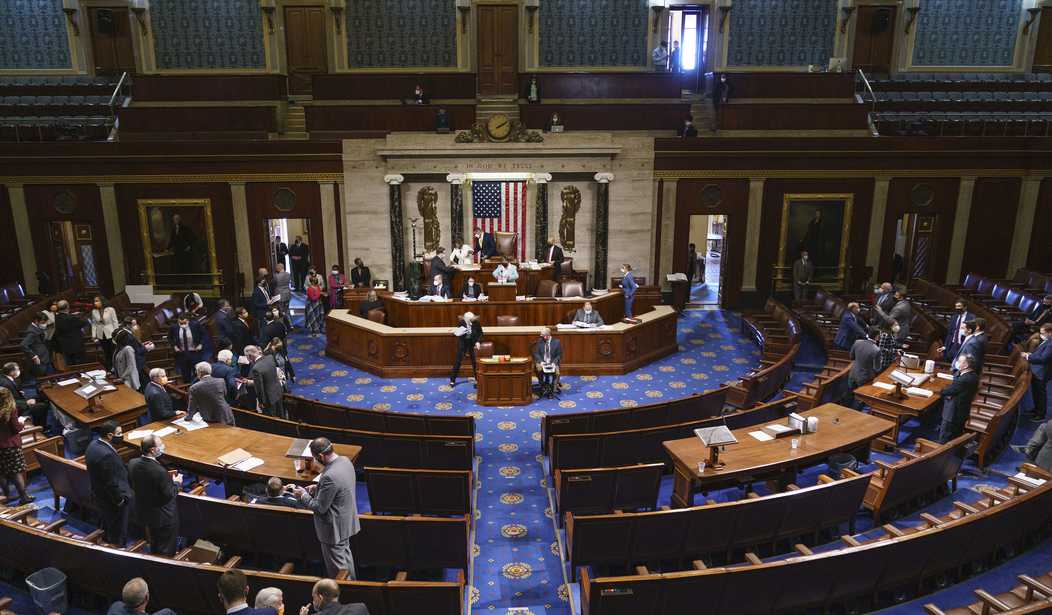The GOP-led House of Representatives voted on Tuesday to approve two new committees in the lower chamber, including one that's set on investigating how the Biden administration — as well as previous administrations — have used the federal bureaucracy as a cudgel against political or ideological opponents.
In a straight party-line vote, the House cleared the creation of a new Select Subcommittee on the Weaponization of the Federal Government that will fall under the House Judiciary Committee, 221-211.
The agreed-to resolution explains the new investigative body's aims:
The select subcommittee is authorized and directed to conduct a full and complete investigation and study and, not later than January 2, 2025, issue a final report to the House of its findings (and such interim reports as it may deem necessary) regarding—
(A) the expansive role of Article II authority vested in the Executive Branch to collect in5 formation on or otherwise investigate citizens of the United States, including ongoing criminal investigations;
(B) how executive branch agencies work with, obtain information from, and provide in10 formation to the private sector, non-profit entities, or other government agencies to facilitate action against American citizens, including the extent, if any, to which illegal or improper, unconstitutional, or unethical activities were engaged in by the Executive Branch or private sector against citizens of the United States;
(C) how executive branch agencies collect, compile, analyze, use, or disseminate information about citizens of the United States, including any unconstitutional, illegal, or unethical activities committed against citizens of the United States;
(D) the laws, programs, and activities of the Executive Branch as they relate to the collection of information on citizens of the United States and the sources and methods used for the collection of information on citizens of the United States;
(E) any other issues related to the violation of the civil liberties of citizens of the United States; and
(F) any other matter relating to information collected pursuant to the investigation conducted under this paragraph at any time during the One Hundred Eighteenth Congress.
Recommended
As with Monday evening's vote to pass the House Rules package for the 118th Congress, Rep. Dan Crenshaw was the lone Republican member of the lower chamber who did not vote on the resolution. An aide to Crenshaw told Townhall that the Texas Republican's unannounced absence from Washington is to attend a SEAL funeral, but the absence was not publicized to protect the family's privacy.
On Tuesday afternoon the House also passed — in a show of significant bipartisanship that has been rare of late — a resolution to establish a Select Committee on the Strategic Competition Between the United States and Chinese Communist Party by a margin of 365-65.
As the resolution explained of the new select committee:
The sole authority of the Select Committee shall be to investigate and submit policy recommendations on the status of the Chinese Communist Party’s economic, technological, and security progress and its competition with the United States.
The Select Committee may, at its discretion, hold public hearings in connection with any aspect of its investigative functions.
On this resolution, GOP Reps. Dan Crenshaw (TX), Byron Donalds (FL), and Doug LaMalfa (CA) did not vote.
As these new committees get underway — along with the usual preexisting committees — expect plenty of subpoenas and hearings announced by the new Republican leaders who are chomping at the bit to provide oversight of the Biden administration and its activities through the first two years of his tenure.
























Join the conversation as a VIP Member